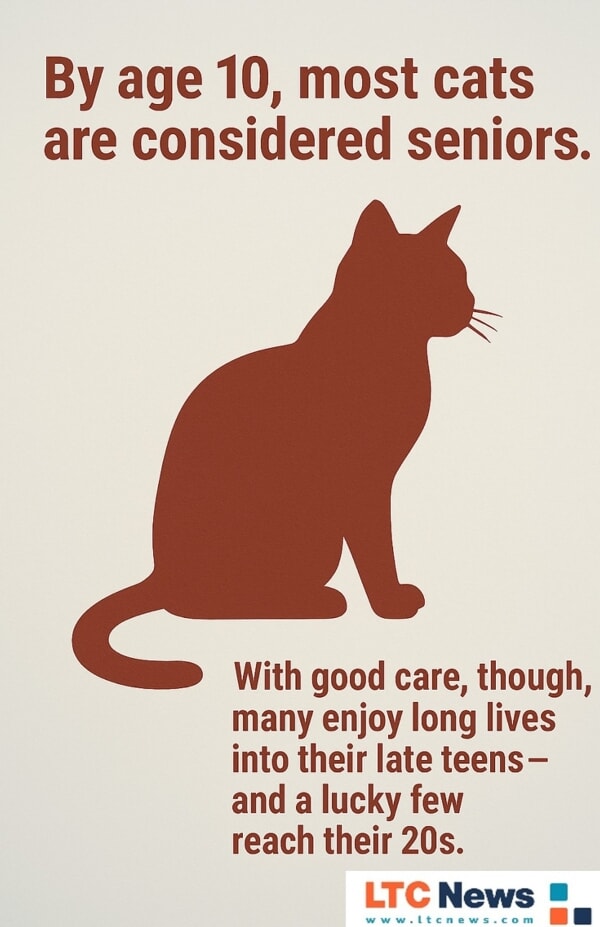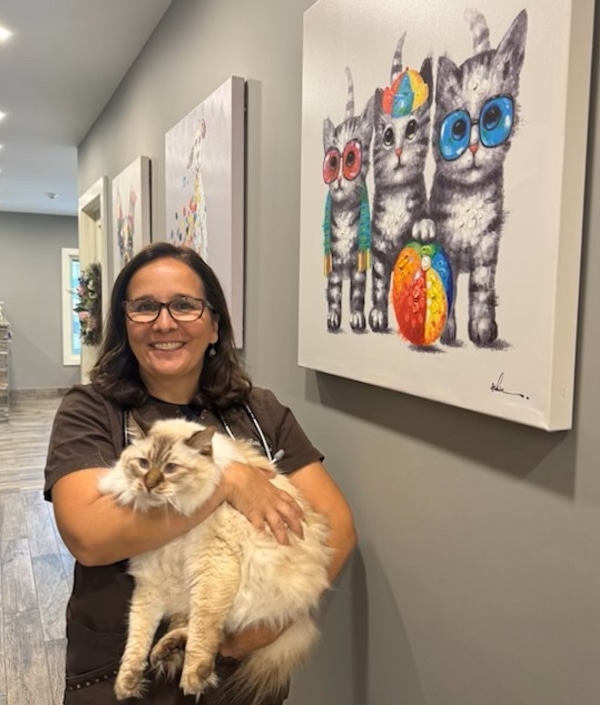Aging Together: How Cats Grow Old with Us—and How Long-Term Care Planning Can Help Care for Them Too

You might not expect me to be a cat lover. However, don't let looks fool you. There’s something timeless about the sound of a purring cat curled up beside you. Go ahead, make fun of me. However, for millions of older adults, including myself, feline companionship isn’t just a comfort—it’s a lifeline. Cats offer emotional connection, routine, and purpose, especially as your lifestyle slows down and priorities shift with age.
Whether you’ve raised your cat since it was a kitten or welcomed an older rescue into your life, you’re not aging alone—they’re growing older with you. Understanding how to care for your feline friend as both of you age is part of building a compassionate, well-prepared future.
How Cats Age: What to Expect in Their Senior Years
Cats are considered “senior” around age 10, and many live well into their late teens with proper care. Some even reach their early 20s.
Average Lifespan:
- Indoor cats: 13–18 years (sometimes over 20)
- Outdoor cats: 7–11 years
According to the American Veterinary Medical Association (AVMA), indoor cats live significantly longer due to fewer threats from predators, diseases, and accidents.

As cats age, they experience many of the same issues humans do:
- Arthritis and joint stiffness
- Kidney disease (especially chronic kidney disease—common after age 12)
- Dental disease
- Diabetes
- Hyperthyroidism
- Vision and hearing loss
- Weight loss or obesity
Dr. Michelle Radwanski, D.V.M., a highly regarded veterinarian based in Lemont, Illinois, notes a sharp rise in the number of older cats under her care, reflecting their expanded role within families. She says veterinarians can treat many diseases in senior cats if they’re detected early.

Every senior cat should receive a thorough physical, bloodwork, urinalysis, and even blood pressure testing to ensure more healthy years ahead. Like us, they develop age-related illnesses, but they can’t tell us when something is wrong. Building a strong relationship with your veterinary team helps you spot signs of pain or illness and ensures your cat gets the care it needs.
Older cats may also show changes in behavior, such as confusion, vocalizing at night, or altered grooming habits—signs that can mimic feline cognitive dysfunction, a feline version of dementia.
Your cat may appear to be lost and wandering aimlessly in places they know well, or confused about where to find their food bowl or litter tray. They may seem forgetful of previously learned behavior (such as grooming themselves), or spend time staring blankly into space. … You may find that they start loudly meowing or yowling for no apparent reason, or in the middle of the night. — Dr. Brian Faulkner, MRCVS.
Daily Cat Care for Aging Felines
Caring for a senior cat requires extra attention and patience. Here are some steps that help:
- Regular vet checkups: Twice a year is ideal for seniors.
- Grooming assistance: Arthritis can limit self-cleaning, so brushing helps.
- Joint supplements or special diets: Vet-recommended food can help ease age-related conditions.
- Comfortable, accessible spaces: Steps, ramps, and cozy heated beds reduce strain on joints.
- Litter box adjustments: Lower-sided boxes are easier for arthritic cats.
- Enrichment: Playtime, petting, and window views help maintain engagement and reduce stress.
Just like us, senior cats do best with a balance of comfort, stimulation, and consistent care. With the right environment and support, many cats thrive well into their senior years.
Your veterinary team can guide you on what to watch for as your cat ages to maintain quality of life. Recommendations may be as simple as adjusting diet or as involved as providing monthly pain injections. Building a strong relationship with your veterinarian ensures you can make the best decisions for your aging cat. — Michelle Radwanski, D.V.M.
Why Cats Are Ideal Companions for Older Adults
Cats are relatively low maintenance compared to other pets, and their quiet presence and rhythmic routines make them ideal for many people, including older adults. The benefits are also backed by science.

Health Benefits of Cat Companionship:
- Reduced loneliness: Especially after retirement or the loss of a spouse.
- Lower blood pressure and heart rate: Petting a cat can be therapeutic.
- Improved mental health: Daily interactions help with depression and anxiety.
- Sense of purpose: Having someone rely on you is grounding.
Who Will Care for Your Cat if You Need Long-Term Care?
It’s a question few want to consider—but it matters deeply:
When you need extended care, who will care for your cat?
This is a question some Long-Term Care Insurance specialists will ask when they are speaking to a client who has a cat or dog. You may need care, but the pet you have cared for throughout the years will still need to be cared for as well.
Many older adults delay long-term care planning, assuming family will step in. But adult children may live far away or be unable to care for pets. If you need home health care or move into assisted living, your pet’s future should be part of the plan.
Some Long-Term Care Insurance policies offer flexibility through:
- Cash indemnity benefits: These provide monthly cash, tax-free, regardless of receipts or expenses.
- Added riders for extra cash or informal caregiving: These benefits can be used however you choose—including boarding, in-home pet care, or helping a family member care for your cat.
A growing number of people use these flexible benefits to protect their pets’ well-being during a period of care. As with every other part of long-term care planning, it’s about choice, dignity, and reducing crisis.
Whether a cat or a dog, many pet owners want to ensure they are able to keep their pet with them in their home.

Share your thoughts and experiences about aging, caregiving, health, retirement, and long-term care with LTC News — Contact LTC News.
Practical Planning Tips for Pet Owners
- Include your pet in your estate and care plans: Consider a pet trust or designate a caretaker in your will.
- Talk to your LTC Insurance specialist: Ask about policies with cash benefits or rider options.
- Document pet care instructions: Keep food, medication, habits, and vet contacts in an easy-to-find spot.
- Consider pet-friendly senior housing options: Many assisted living communities now welcome cats and small pets.
- Find a pet-friendly caregiver or assisted living facility: The LTC News Caregiver Directory can help you search for a caregiver or long-term care facility near you.

Final Thoughts: Aging Side by Side
Your cat has likely been a quiet constant through many of life’s changes. They ask for little but give a lot. As you grow older, their companionship may become even more meaningful, and planning for both your futures is an act of love.
LTC Insurance not only protects your lifestyle and access to quality care but may also ensure your furry friend is cared for when you can no longer do so yourself. Because aging gracefully isn’t just about you—it’s about those who walk beside you, even on four paws.
There are differences between LTC policies. Get quotes for an LTC policy that meets your needs, as well as those of your pet.
Resource:
- Local Area Agencies on Aging: Many U.S. states and counties have aging networks that include services for keeping pets supported. For example, mobile veterinary services or financial assistance may be offered through local aging offices.


